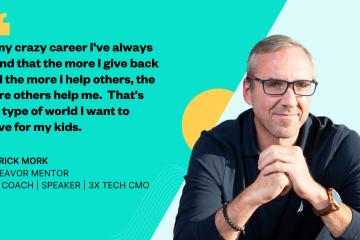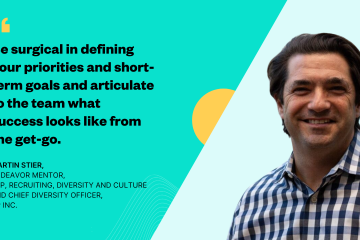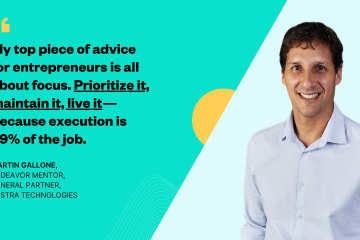In this Mentor Spotlight get to know our Endeavor Mentor Gonzalo Zubieta, Founder & CEO at Emet Partners.
Why did you decide to join the Endeavor Network?
Several friends, who are directors of Endeavor in LATAM and Miami, have always spoke highly of this network and this motivated me to join Endeavor.
My passion is to make a difference in CEOs and leadership teams. I want them to increase their effectiveness as leaders not only in their own business agendas but also in the transformative leadership agenda to build organizations that can transcend in society.
Tell us about your background and why you decided to become a mentor?
At the age of 29, I had my own IPO experience going public in NASDAQ. As exciting as this sounds, it was a painful experience. I ended up in the hospital 1 month before the IPO because I was working way too hard (80 hours a week). This event changed my life and led me to pursue a meaningful purpose, find my identity and clarify my destiny. These 3 findings have propelled me to share them with leaders in 20 different countries during the last 15 years.
Teaching MBA programs in several universities has allowed me to conduct research on the difference between exercising leadership versus authority applying neuroscience in 1000 CEOs. The result has produced a powerful online test called Flow IQ that measures leadership capacity of individuals and teams.
What do you believe are the most important qualities and characteristics that mentors should have?
The most effective mentors are the ones that have walked “death valley” and have been able to articulate their lessons learned in a framework that can help leaders navigate their leadership challenges. Understanding the S-Curve (company’s life cycle) and matching it to the brain wiring of the CEO is a powerful way to help leaders anticipate the challenges they will face during their journey.
Any general advice for entrepreneurs?
Learn the difference between exercising leadership versus authority. Discover if you are wired to use power or influence to lead engagement. Find a purpose that you can install in the organization and adapt to the changes that the different cycles your organization will go. Remain open, humble and vulnerable to learn from your shortcomings and remain connected and accountable to a mentor or other leaders in a similar situation.



